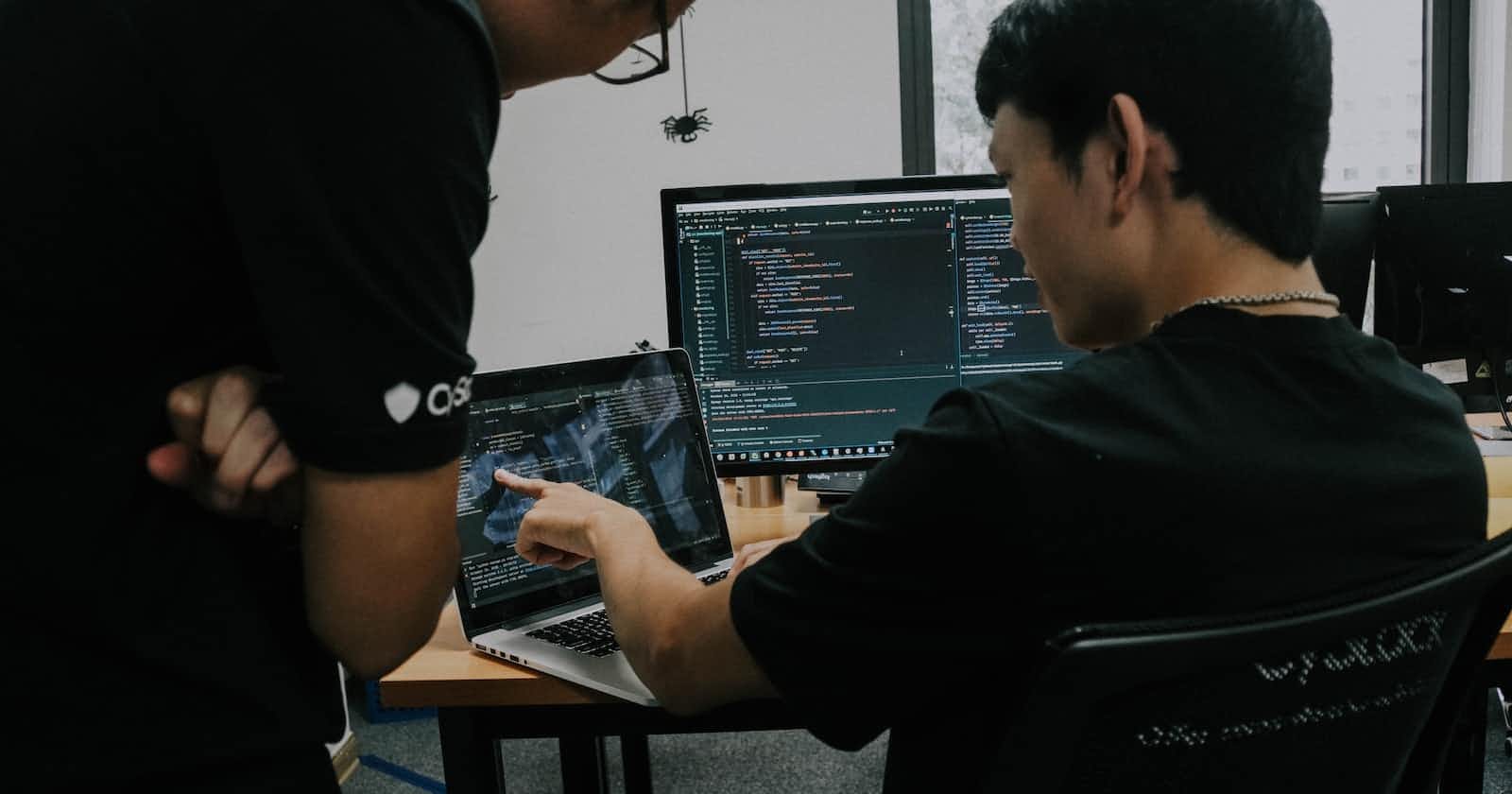
How can a cybersecurity startup make threat hunting 4X faster and reduce cyber teams burnout?
Silicon Roundabout community startup Malizen is supercharging cybersecurity teams to help counter the growing talent gap of 3.4 million unfilled jobs
Table of contents
- An impossible war: outnumbered defenders against ever increasing attackers
- What if technology could help multiply the efforts of a cyber team?
- What is the problem you are solving? And for who?
- How does the technology work?
- Who is the founding team and how did you get to launching this startup?
- We love getting to know our community founders: One fun fact about you?
- How can readers help you achieve your mission?
An impossible war: outnumbered defenders against ever increasing attackers
Cyber attacks all over the world are intensifying and are predicted to keep growing as the world become increasingly more digital and interconnected.
According to the 2022 Cyber Readiness Report by insurance company Hiscox, 48% of companies reported a cyber attack in the last 12 months, up from 43% last year.
Meanwhile, according to Siemens research, we are heading towards over 50 billion physical objects being connected together on the internet.
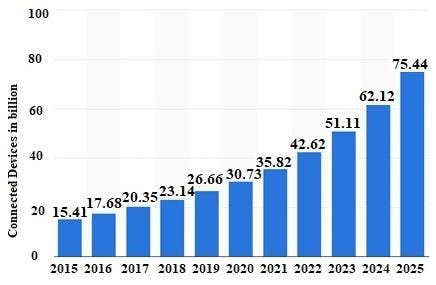
Yet, cybersecurity teams find that defending their tech infrastructure against this relentless silent war is getting harder and harder. The cybersecurity talent gap grew by 26.2% with around 3.4 million unfilled jobs worldwide, according to according to the International Information System Security Certification Consortium or (ISC)².

What if technology could help multiply the efforts of a cyber team?
In February 2022 I hosted a big data and AI meetup to help showcase startups in the Silicon Roundabout tech community.
The pitch winner back then was the team made up of Chris, Simon and Léa. Their solution, Malizen, combines new data visualisation techniques and machine learning to help cybersecurity managers struggling with hiring, on one side, and cybersecurity analysts tackling both threats and false-positives detected by other software tools, on the other.
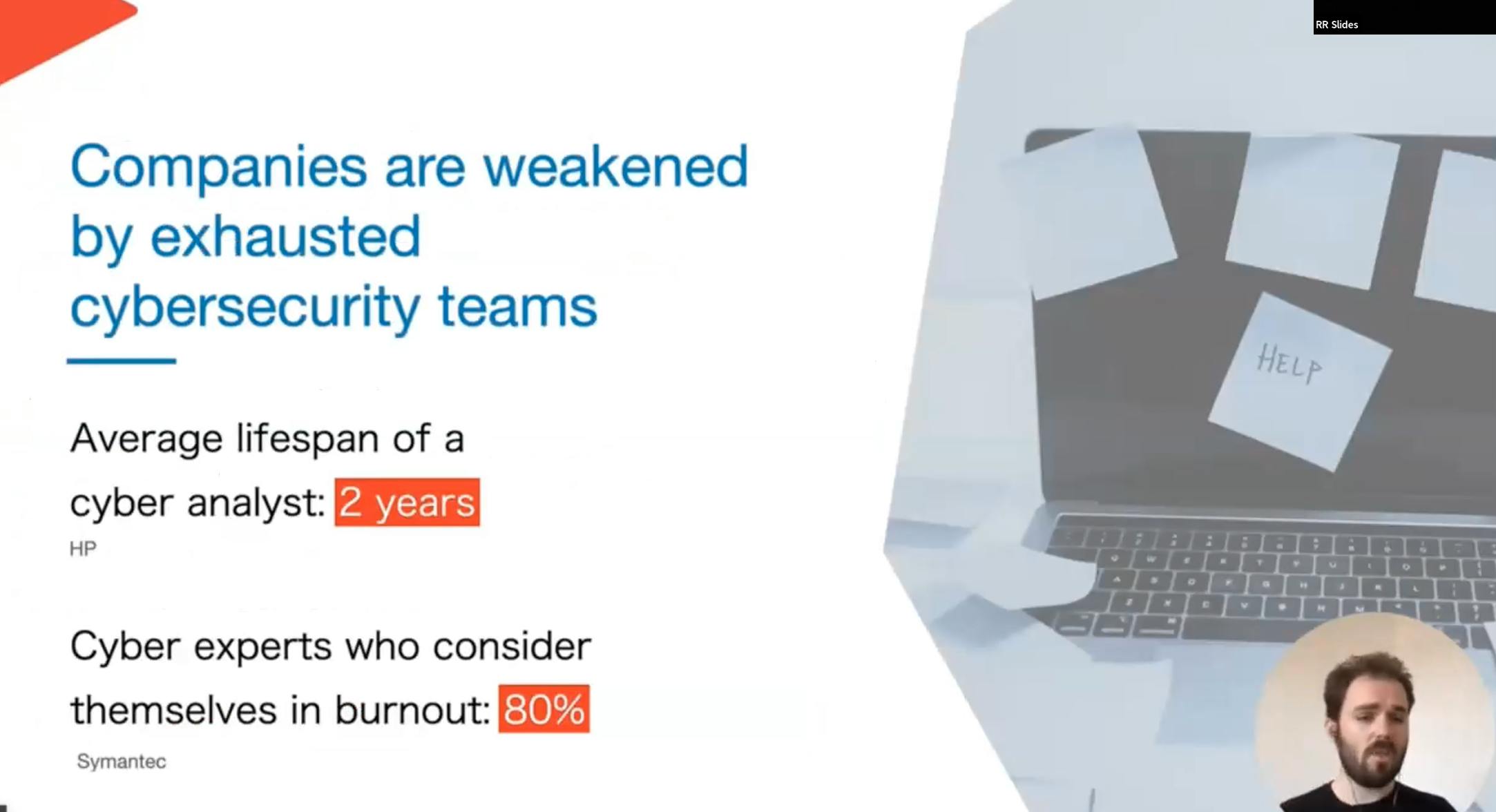
Malizen is a cybersecurity software startup focused on speeding up cybersecurity investigations and helping cybersecurity operations scale. They are a based around Rennes, France, have secured some early commercial wins and are combining a rare attention to both AI R&D and human-centred UX in the development of their product.
Based on the founder’s thesis at the French Institute for Research in Computer Science and Automation (INRIA) funded by the French military (DGA-MI), Malizen’s ZeroKit is an all-in-one platform for analysing, understanding, and sorting cyber-security threats efficiently. Its purpose is to enhance the output of cybersecurity professionals whilst minimising the workload of cybersecurity teams.
The software already got initial results with with both institutions and corporations, such as DGA-MI (i.e. the French version of the US DARPA) and Thales Group: a French multinational company building electrical systems and providing services for the aerospace, defense, transportation and security markets.
Based on customer feedback and the company’s own research, ZeroKit can today save around 2 hours of work time per analyst per day and speed up the process of dealing with both threats and false positives by 4 times.
After seeing their platform in action over several zoom calls and following their growth for several months, I've sat down with the CEO, Christopher Humphries, to ask him about who is the team behind Malizen and how the product works.
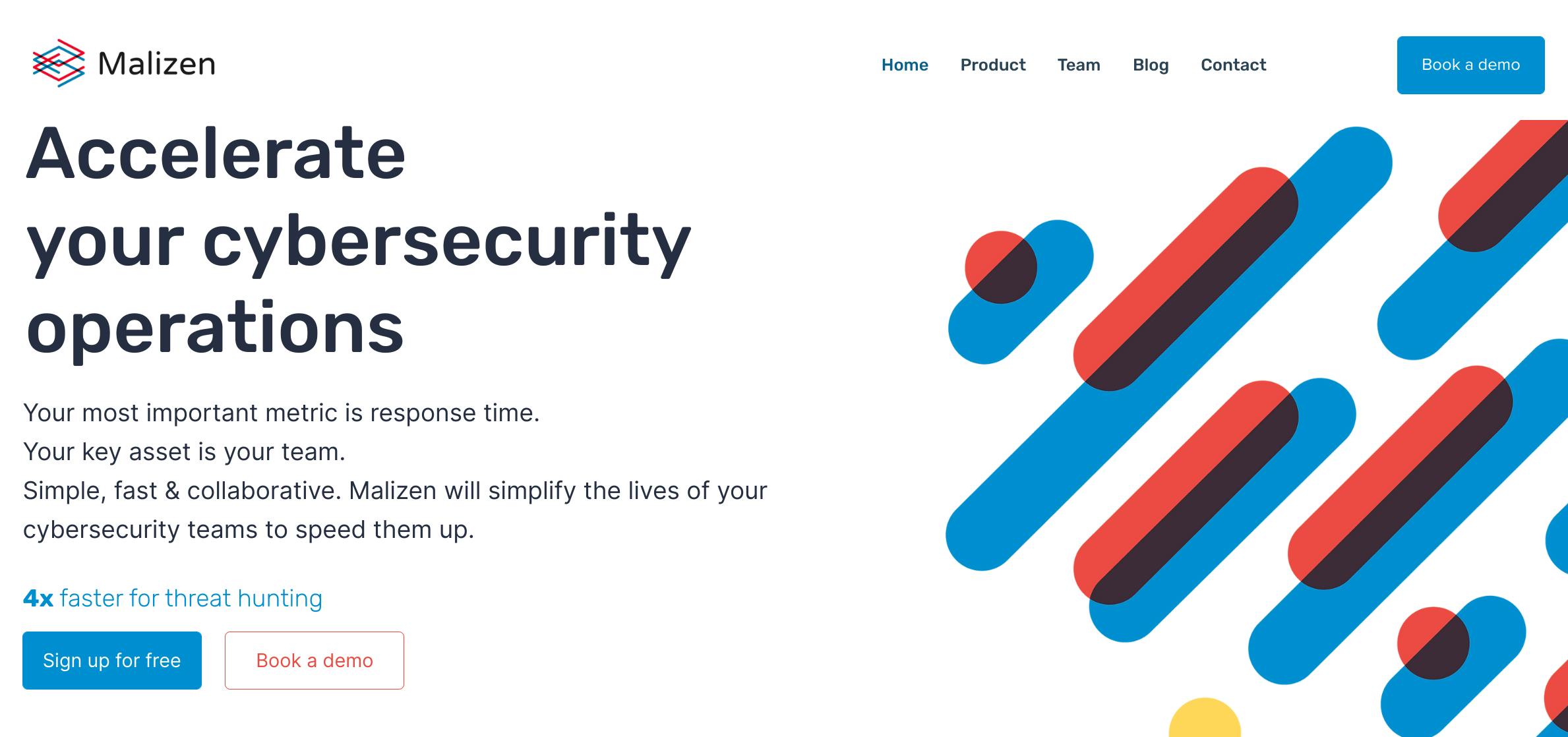
Here is what Chris has to say:
What is the problem you are solving? And for who?
Regardless of the size of the company, cybersecurity teams are either stretched thin or can't staff up fast enough. In both cases they're overwhelmed by work and need to go faster and/or bring in more people to help.
While initially we were focused only on investigations, today our mission includes related issues cyber teams face such as knowledge management, reporting, collaboration and onboarding new team members. We've used our platform as a foundation to help teams face all these other challenges.
How does the technology work?
We've fine tuned data science technologies for cybersecurity and combined them into an interactive investigation platform for cyber teams. Every component we add is used to overcome obstacles and accelerate the process.
For example, cyber teams need to sift through many different kinds of data from different sources. We start helping their work by centralising this spread-out heterogeneous data into a single knowledge graph.
This serves as the foundation for the rest of the platform, and the more it grows the more powerful it gets.

We started with automatic and interactive data visualisation, which helps teams avoid typing out queries (often in a custom query language) or configuring clunky dashboards to explore data.
We've designed the entire platform for real time collaboration, which nowadays is almost an expected feature. Case management and team decisions also use the graph for storage, which then provides most of the data for automatic reporting.
Our latest trick was to use the graph to power our copilot, a collection of machine learning algorithms which learn in the background from decisions and new data to help out when possible. The copilot can, for example, suggest the next step in an investigation and will soon be able to recognise effective investigation techniques to help the rest of the team out.
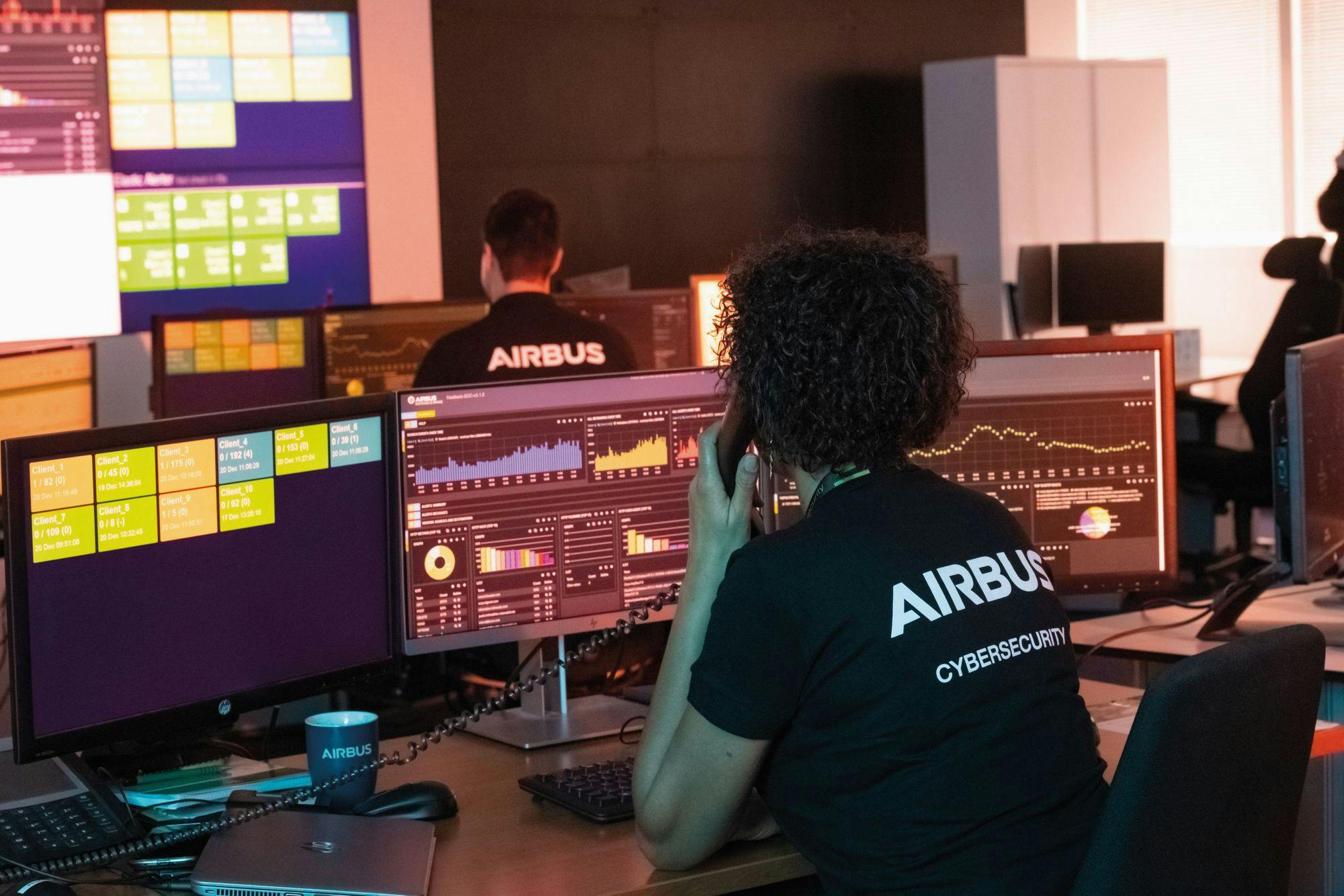
Who is the founding team and how did you get to launching this startup?
There's a sci-fi trope about things starting in research labs.
Our story started in a cybersecurity research lab in France. Tools for exploring logs were rare and far from intuitive. Others in defense agreed so much I was able to finance my entire PhD.
The end prototypes were so promising we decided to start Malizen rather than risk letting the tech go to waste.
It's in that team that I met my future co-founder and CTO Simon. We were both into sci-fi and he's a real cybersecurity and machine learning geek. Useful traits to start discussions and aim for the future. He's also a great guy who really cares about the human side of cybersecurity.
After spinning out Malizen, Cris and Simon were joined by Lea, the former Chief of Staff of startup Procsea, as COO.
Personally, what never fails to drive me is witnessing people getting a kick out of our software and that sense that we're giving them superpowers. There's a point where people new to the platform get it and things click into place. Within a few minutes they're in the zone, exploring data just like in the sci-fi films we were inspired by, but in real life.
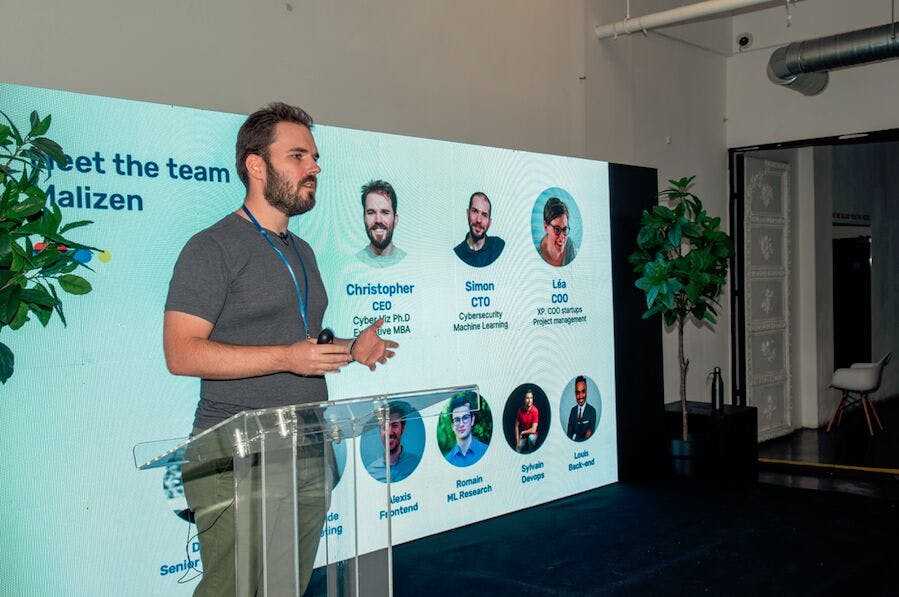
We love getting to know our community founders: One fun fact about you?
I got into running a few years ago. It's great for disconnecting and it helps me get my thoughts in the right place. I set myself the challenge of running a half-marathon in every new country I visit.
Not always easy to plan!
But I always travel with running shoes, and that's led me to run in places like India, Andorra, Switzerland… Last year I was at Slush, and it was my first time in Helsinki.
Running in -10ºC weather with a frozen bottle of water… quite an experience.
 This is not actually Chris but me asking Dall-e 2 to render his experience 🤯
This is not actually Chris but me asking Dall-e 2 to render his experience 🤯
How can readers help you achieve your mission?
We've just launched a community version of our platform. We started out looking for tools like this to search through data and it feels great to be able to help solve that problem for others. It's free and we're fuelled by feedback, so do get in touch!
If you find that the tech is really helping you on a regular basis and you work in a cybersecurity team, give us a ping so we can help you bring the full version home.
If you like where we're going as a company, and you're an investor interested in cybersecurity, software and deeptech, we're also currently looking for seed investors 😉
Free platform trial and founder contacts
If you want to get in touch with Cris, here is his LinkedIn and you can sign up to his Community platform here.

About me: I'm the founder and managing partner at Silicon Roundabout Ventures. A computer scientist by background, I ended up in venture capital through my love for technology, building communities and applied science.

